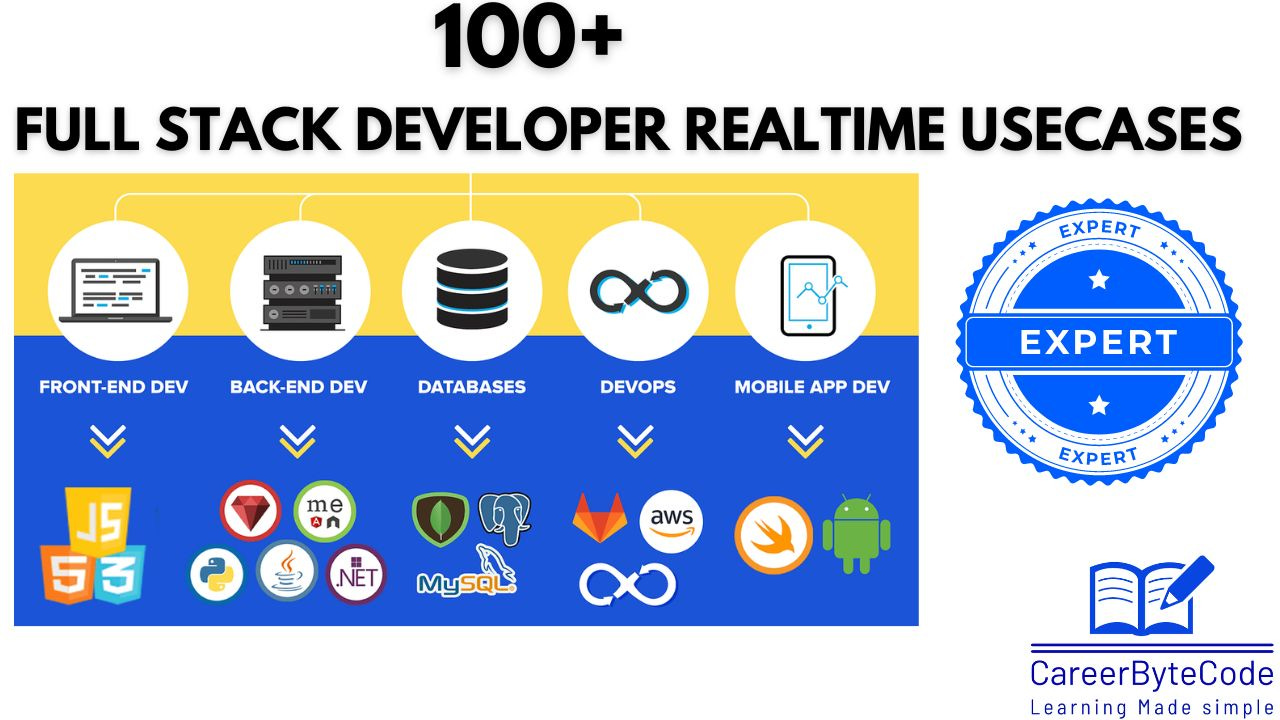Mastering the Art of Development: Expert Use Cases for Aspiring Full Stack Developers
The use cases provided are designed for candidates aspiring to work in full-stack development, particularly those interested in building web and mobile applications.
The use cases provided are designed for candidates aspiring to work in full-stack development, particularly those interested in building web and mobile applications. They encompass a variety of domains, such as e-commerce, social networking, project management, health and wellness, and education.
Who Can Handle These Use Cases?
Full Stack Developers: Proficient in both front-end and back-end technologies.
Web Developers: Focused on building web applications.
Mobile App Developers: Specializing in cross-platform app development.
UI/UX Designers: Who also have some development knowledge to implement their designs.
Product Managers: With a technical background to understand development processes.
Job Opportunities for Candidates Proficient in These Use Cases
Full Stack Developer
Front-End Developer
Back-End Developer
Mobile App Developer
Software Engineer
UI/UX Designer with Development Skills
Product Manager (Technical)
Web Application Developer
Learning Knowledge Required
Programming Languages: JavaScript, HTML, CSS, Python.
Frameworks and Libraries: React, React Native, Node.js, Express.js.
Database Management: Understanding of MongoDB or SQL databases.
Version Control Systems: Basic knowledge of Git and GitHub.
APIs: Knowledge of RESTful services and how to consume APIs.
Working Knowledge Required
Development Environments: Familiarity with local development setups, cloud environments, and version control workflows.
Deployment: Understanding of how to deploy applications to cloud platforms (e.g., AWS, Heroku).
Agile Methodology: Knowledge of Agile practices, including Scrum and Kanban.
Responsive Design Principles: Ensuring applications are user-friendly on all devices.
Tools Needed
Development Tools: Visual Studio Code or any IDE of choice.
Design Tools: Figma or Adobe XD for UI/UX design.
Project Management Tools: JIRA or Trello for task management.
Collaboration Tools: Slack or Microsoft Teams for team communication.
Testing Tools: Postman for API testing and Jest for unit testing.
Access and Environments Needed
Local Development Environment: Ability to set up and configure local servers and databases.
Cloud Accounts: Access to cloud platforms for deployment and testing.
Testing Environments: Knowledge of setting up staging environments for pre-production testing.
Why Full Stack Developers Need to Do These Use Cases
Real-World Experience: Engaging with these use cases provides practical knowledge that can be applied to real-world projects.
Skill Development: Helps in honing both front-end and back-end skills, making developers more versatile.
Portfolio Building: Completing a variety of projects enhances a developer's portfolio, making them more attractive to potential employers.
Understanding User Needs: Gaining insight into different domains helps developers understand user requirements better, leading to more user-centered designs.
Career Advancement: Mastery of these use cases can lead to better job opportunities and career growth in the competitive tech industry.
By working through these use cases, candidates can develop a strong foundation and practical experience, positioning themselves effectively for a range of roles in the tech industry.
Here are the 100 real-time full-stack development expert level use case scenarios based on your skills:



